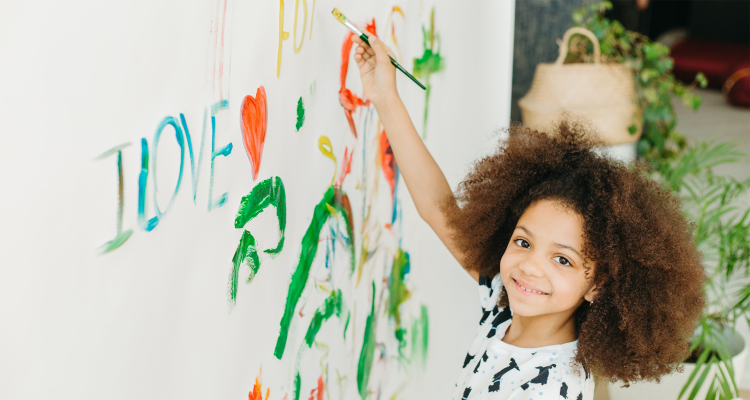Blog
The Power of the Arts: Fostering Creativity in the Next Generation and Beyond
May, 26 2023

In a world driven by technology and academic rigor, the arts often find themselves overshadowed and undervalued in the realm of child development. However, the power of the arts should not be underestimated. Engaging children in artistic activities, such as music, dance, theater, and visual arts, can have a profound and lasting impact on their overall growth and well-being. This blog explores the transformative power of the arts and the multitude of benefits they bring to a child’s life, while providing insights into how we can make a difference in supporting the arts for our children, grandchildren, and the next generation of change makers in our communities.
Self Expression and Creativity
According to renowned artist Pablo Picasso, “Every child is an artist. The problem is how to remain an artist once we grow up.” The arts provide children with a unique platform for self-expression. Whether it’s painting, dancing, acting, or playing an instrument, artistic activities allow children to explore their imagination, thoughts, and emotions in a creative and uninhibited manner. This self-expression nurtures a sense of identity, boosts confidence, and encourages children to think outside the box, fostering their ability to problem-solve and innovate throughout their lives.
How Can We Help? Encouraging and fostering self-expression and creativity in children can be as simple as providing them with the necessary tools and resources. By nurturing their artistic expression, you can empower children to embrace their creativity and discover their unique voices.
Social Skills and Collaboration
The arts foster a collaborative and inclusive environment where children learn to work together, respect diverse perspectives, and communicate effectively. Whether participating in a school play, a choir, or a painting class, children collaborate with their peers, learning to compromise, negotiate, and appreciate teamwork.
How Can We Help? Encourage children to engage in team-based artistic projects that require cooperation, communication, and respect for others’ ideas. Additionally, support local arts organizations and community initiatives that foster collaboration among children from diverse backgrounds. By prioritizing collaborative artistic experiences, you help children develop essential social skills and create lasting connections with their peers.
Cognitive Skills Enhancement
Participating in the arts positively impacts a child’s cognitive development. Studies have shown that children involved in arts education demonstrate improved critical thinking, problem-solving abilities, and enhanced spatial-temporal skills. Learning music, for example, has been linked to advanced mathematical skills, as it involves counting, rhythm, and pattern recognition. Engaging in the visual arts can refine a child’s observation skills, attention to detail, and visual-spatial reasoning. These cognitive skills acquired through the arts transfer to other academic areas, contributing to overall academic success.
How Can We Help? To enhance a child’s cognitive skills through the arts, consider advocating for comprehensive arts education in schools. Support arts programs, workshops, and extracurricular activities that promote critical thinking, problem-solving, and creativity.
Cultural Appreciation and Global Awareness
As educator and anthropologist Margaret Mead observed, “The arts and sciences are avatars of human creativity.” The arts introduce children to diverse cultures, traditions, and perspectives, fostering cultural appreciation and global awareness. Through music, dance, and visual arts from various regions and time periods, children develop an understanding and respect for different cultures, promoting tolerance and inclusivity. This exposure helps them become global citizens, broadening their horizons and cultivating a sense of curiosity about the world.
How Can We Help? To foster cultural appreciation and global awareness in children, expose them to diverse artistic experiences and encourage them to explore various cultural expressions. Encourage curiosity about different cultures and engage in discussions about the significance of art in preserving and celebrating cultural heritage. By embracing and encouraging cultural diversity, you instill in children a sense of respect, empathy, and global citizenship.
When it comes to the arts, it really does “take a village”. The transformative power of the arts on a child’s development is immense. By actively supporting and promoting artistic engagement in children’s lives, we can make a meaningful difference. Encourage self-expression, support emotional development, advocate for arts education, promote collaboration, and foster cultural appreciation. Through these efforts we contribute to nurturing well-rounded individuals who embrace their creativity, empathy, and cultural understanding. Together, we can create a world where the arts are celebrated and valued as an essential part of every child’s development.